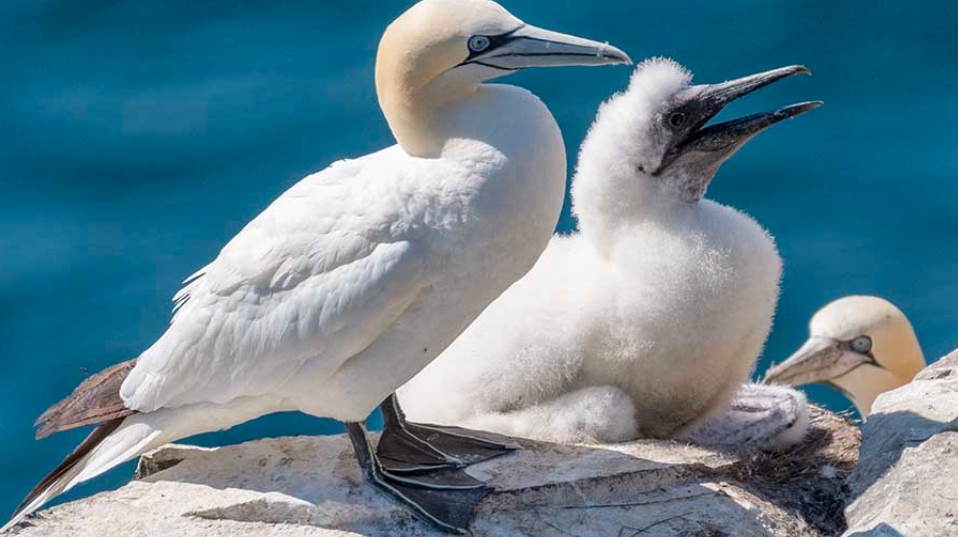Scotland’s seabirds are suffering a catastrophic fall in numbers due to the deadly H5N1 bird flu virus, according to a new study by conservation groups. The report reveals that some species have lost more than three-quarters of their population in the last two years.
Great skuas and northern gannets hit hard by the disease
The study, conducted by the RSPB, the British Trust for Ornithology and other partners, found that great skuas and northern gannets were among the worst affected by the avian influenza outbreak that started in 2021. These two species are of global importance, as the UK hosts more than half of the world’s population of both birds.
The researchers surveyed 13 seabird species across the UK between May and July 2023, and compared the results with previous surveys. They found that great skuas had declined by 76% and northern gannets by 25% on the sites monitored. In Wales, the number of nesting northern gannets crashed by 54%.
Jean Duggan, a policy assistant on avian influenza for the RSPB, said: “To have that level of loss in a population we have international responsibility for is quite catastrophic. Globally, it’s very significant and has a knock-on effect for populations across the globe.”
Bird flu poses a major threat to seabird conservation
The report warns that avian influenza is “one of the biggest immediate conservation threats faced by multiple seabird species” across the UK and continental Europe. The virus is highly contagious and can spread rapidly among densely packed colonies of seabirds. It can also infect other wild birds and domestic poultry, posing a risk to animal and human health.

Seabirds are typically long-lived animals that do not reach breeding age until they are about five years old. They generally only have a few chicks, so populations take longer to recover from an epidemic such as bird flu. The report also notes that seabirds face other pressures, such as climate change, overfishing, pollution and habitat loss.
The researchers urge bird keepers and the public to remain vigilant for any signs of disease in their flocks or in wild birds, and to report any suspicious cases to the local authorities. They also call for more funding and support for seabird monitoring and research, as well as for the implementation of effective biosecurity measures to prevent the spread of the disease.
Some rare and endangered seabirds also affected by the virus
The report also found that the virus had caused a 21% decline in the UK population of roseate terns, which is the UK’s rarest breeding seabird, with just one regular nesting colony. Roseate terns are classified as endangered by the International Union for Conservation of Nature (IUCN), and their global population is estimated at only 20,000 pairs.
Other seabird species that showed signs of decline due to bird flu include sandwich terns, common terns and kittiwakes. The researchers also detected the virus in dead birds of other species, such as puffins, razorbills, guillemots and shags, but they could not assess the impact on their populations due to the lack of data.
The report highlights the need for more comprehensive and regular seabird surveys, especially in remote and inaccessible areas, where the virus may go undetected. It also recommends further investigation into the sources and transmission routes of the virus, as well as the potential effects of climate change and other environmental factors on its occurrence and severity.


















